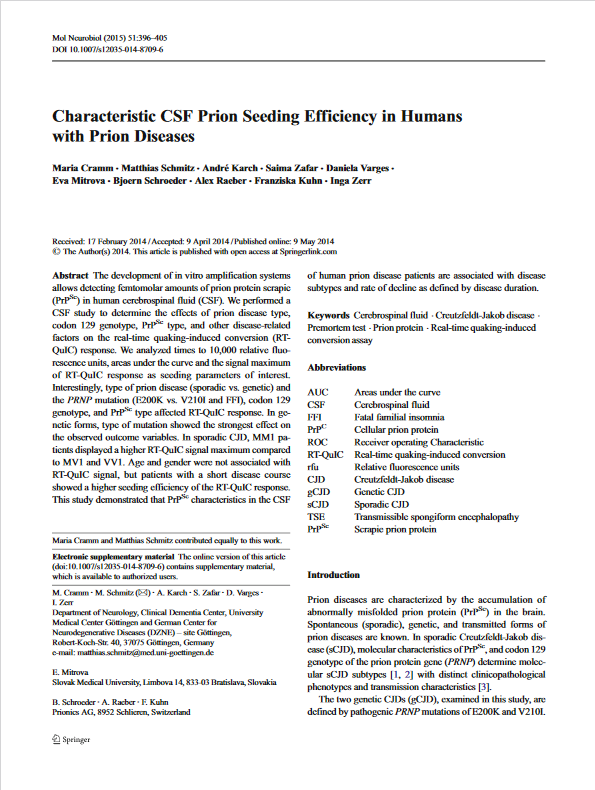02.07.2021
Characteristic CSF prion seeding efficiency in humans with prion diseases
Molecular Neurobiology, 2015
Abstract
The development of in vitro amplification systems allows detecting femtomolar amounts of prion protein scrapie (PrP(Sc)) in human cerebrospinal fluid (CSF). We performed a CSF study to determine the effects of prion disease type, codon 129 genotype, PrP(Sc) type, and other disease-related factors on the real-time quaking-induced conversion (RT-QuIC) response. We analyzed times to 10,000 relative fluorescence units, areas under the curve and the signal maximum of RT-QuIC response as seeding parameters of interest. Interestingly, type of prion disease (sporadic vs. genetic) and the PRNP mutation (E200K vs. V210I and FFI), codon 129 genotype, and PrP(Sc) type affected RT-QuIC response. In genetic forms, type of mutation showed the strongest effect on the observed outcome variables. In sporadic CJD, MM1 patients displayed a higher RT-QuIC signal maximum compared to MV1 and VV1. Age and gender were not associated with RT-QuIC signal, but patients with a short disease course showed a higher seeding efficiency of the RT-QuIC response. This study demonstrated that PrP(Sc) characteristics in the CSF of human prion disease patients are associated with disease subtypes and rate of decline as defined by disease duration.
CircuLex 14-3-3 γ ELISA Kit MBL-CY-8082 is featured in this publication.


